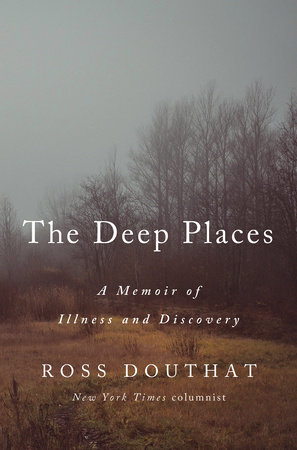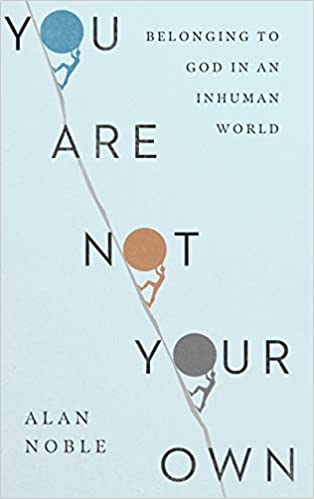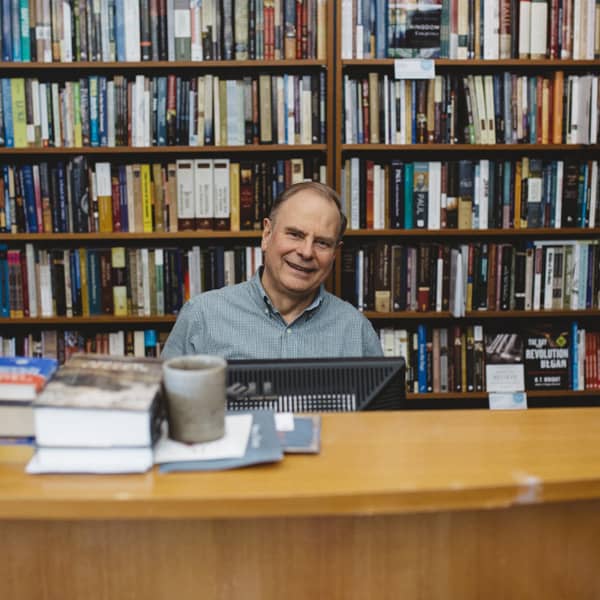Bill on Books: December 2021
Check out what Bill has been reading lately!

Available for in-store purchase only.

In this harrowing, Job-like memoir of deep suffering, the New York Times columnist and Christian public intellectual, Ross Douthat, recounts a six-year struggle with a chronic disease that is often misdiagnosed and misunderstood. Beginning in 2015 with a “romantic” idea to flee D.C. for their childhood roots in Connecticut, Douthat and his wife Abby, also a writer, with their three young children, made the move to rural New England. After a single visit to an eighteenth-century farmstead that they eventually moved into, Douthat came down with a boil on his neck, the result of a deer tick bite. Undiagnosed for weeks, Douthat found himself in deep pain, with a multitude of symptoms that did not go away and saw him visit multiple doctors and emergency rooms. Lyme Disease was the eventual diagnosis. He was subjected to a variety of antibiotic regimes and in desperation tried different “alternative” strategies that he had researched on the internet.
Over the course of this 6-year battle, during which his fourth child was born, Douthat recounts a deep struggle with his faith in God. He admits that before contracting Lyme Disease his Christian beliefs were “pretty abstract” and “intellectualized.” In the midst of suffering, he would often find himself stopping during the day at an empty church and even kneeling on concrete. For two and a half years he pleaded and bargained with God. On at least two occasions, once in a church, and once standing on the beach in a tidal pool while holding his young son, Douthat was profoundly touched by God. He also gained a new appreciation for those who are afflicted with chronic pain and how those of us who are healthy are able to “filter out” these suffering ones. Douthat makes no claim to be “blameless” before God like Job, but I for one tip my hat to a Christian whose faith has been refined by fire.
Available for in-store purchase only.

The author’s starting point is the Christian anthropology represented by the Heidelberg Catechism of 1563 that begins:
Q. What is your only comfort in life and death?
A. That I am not my own but belong – body and soul, in life and in death – to my faithful Saviour, Jesus Christ.
In sharp contrast, Alan Noble, a literary academic, sets out our present cultural creed: “We are each our own; we belong to ourselves.” According to Noble, this creed is embedded in our culture such that even if everyone began attending church, our present malady would change little. Nobel divides our population into two groups: one is The Affirming who embrace our culture's creed willingly while the other group is The Resigned who accept that they will never be able to compete and who despair and fall back on “immersive entertainment until death comes.” Both groups self-medicate whether it be through drink, binge-watching, work, porn, self-improvement, exercise, or social media. Burnout, anxiety, unsustainable consumption, and weariness of the self is ever present. Ours is a story-saturated culture with a fluidity of ethics to match constantly shifting identities. Back and forth through the first half of the book, Noble relentlessly explores the world of the self that modernity has bequeathed.
But what does it mean to belong to Christ? Noble has no formula but we do enter into union with Christ when we accept that we belong to Him and not to ourselves. We have responsibilities to God, church, family, cities and neighbours to whom we can offer discrete acts of kindness. Following the thought of Josef Pieper, the Catholic philosopher, we are to practice leisure rather than a preoccupation with efficiency. We are called to a graceful approach to life in a posture of open hands, palms lifted up. Life and death are difficult but by belonging to Christ we find comfort in them both.
Available for in-store purchase only.



